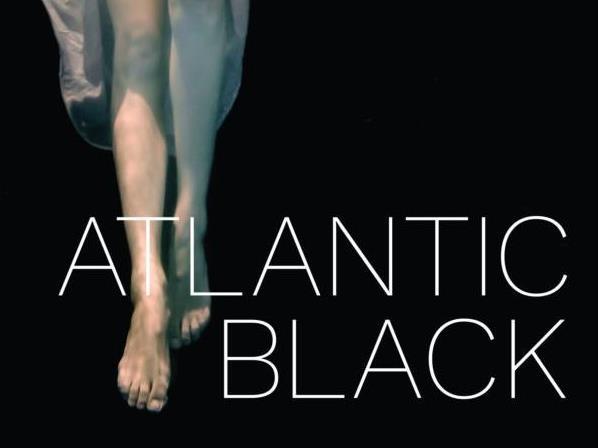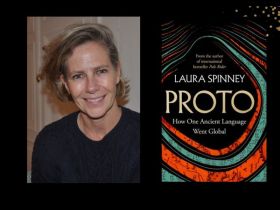Book cover image: Atlantic Black by A. S. Patrić via Transit Lounge.
The famous ocean liner RMS Aquitania sails towards a Europe soon to be torn apart by the events of 1939. The 3,000 or so passengers on board prepare for, and enjoy the revelries of the last day of 1938. Among the passengers are Katerina and her mother; through the character of Katerina, A.S. Patrić crams a lifetime of experiences into 24 hours.
Katerina wanders all over the ship. She relishes the freedom resulting from her mother’s temporary removal to the liner’s sickbay. As the daughter of a diplomat, she has lived in many countries and is fluent in a number of languages. She is still so young that in one shipboard interaction she is pleased at being called a woman, not a girl.
But that interaction is just one of many detailed through the course of Atlantic Black. At one level these encounters are evocative of shipboard life on a luxury cruiser in the period before the second World War, while also giving readers the taste of a somewhat gloomy lifetime with much gone awry. At another level, though, they operate as an allegory for life.
Katerina says:
‘My parents complain that I’m not interested in anything or anybody. That I spend too much time reading. I love books. There’s nothing that offends me in books but it’s different when you see the same things in life. Then I feel like absolutely everything offends me.’
But this self-assessment proves to be wrong, as demonstrated by the way Katerina interacts with the people she meets on board, be it the shoe-shine boy or the doctor, the midshipman or the Spanish women. When she notices a badly injured young man in a toilet block she offers all the help she can.
As Katerina wends her way through the ship and through the last day and night of 1938, she encounters cordiality and rudeness, helpfulness and obstruction, frustration and success, and is involved in a range of sexual experiences. Most of Katerina’s encounters are inconclusive. Patrić is suggesting this is what life is about, and reinforces that view through Katerina’s recollection of letters from her brother which tell of his military training and failed ambitions. She also recalls mostly happy memories of her father and less pleasant thoughts about her domineering but caring mother.
Atlantic Black is dotted with observations and aphorisms – some poetic: ‘You will see … the stars are easy/much easier than the dandelions at your feet’, some acerbic, as she recalls her father saying that the English ‘are defined by their petty vanity and an unrivalled purity of hypocrisy.’
However, some observations were pessimistic: ‘Painless solutions don’t really work’, as one of the Spanish women notes.
This book is bleak, dark if you like. It exudes a sense of dissatisfaction and so does not make for cheerful reading. There is no place for humour though it is light-hearted at times.
Atlantic Black is a book about a journey to doom, barely relieved with some pleasant interludes. But it has much to give, and is worth reading more than once.
4 ½ stars out of 5
Atlantic Black
Format: ISBN: 978-0-99544098-2-8 Trade PB, 288pp
Rights: World
Release / Publication Date: 01 /11 /2017
Categories: Fiction
Transit Lounge Publishing 2017





